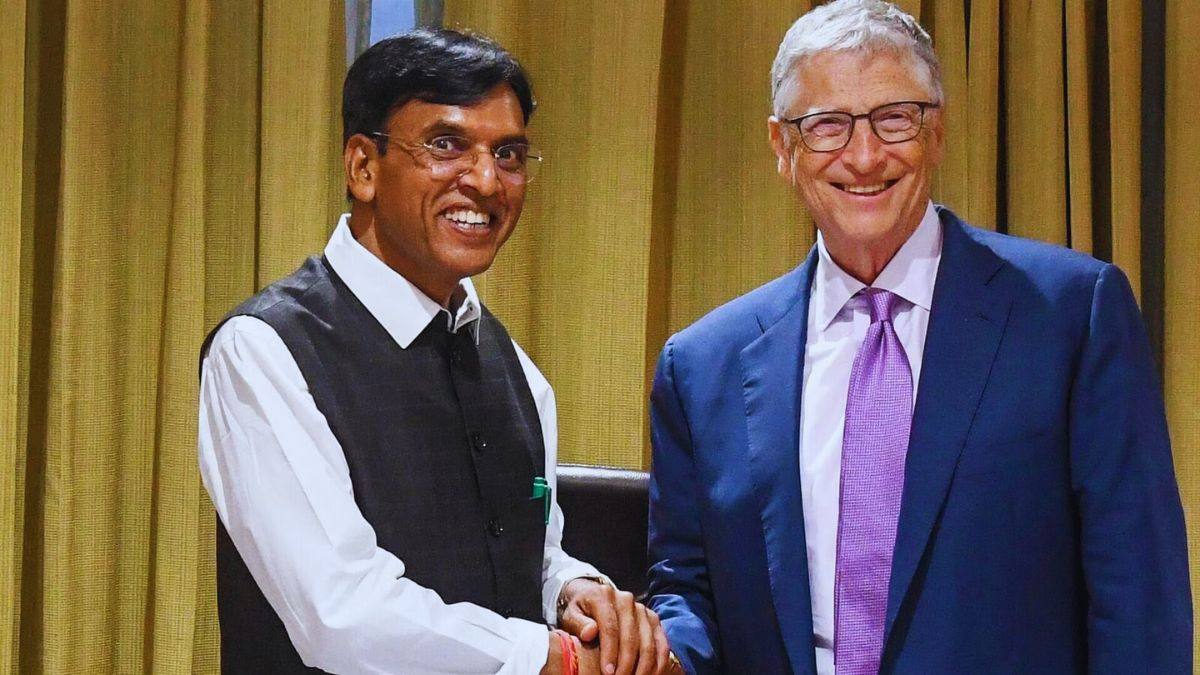Currently, the costs of available therapies are prohibitively expensive—even in high-income countries like the United States—and it may be an area for collaboration between the foundation and the Government of India, working with the Indian private sector to develop a cost-effective therapy for sickle cell anaemia for the entire world,” Bill Gates stated.
He went on to say, “The foundation has been privileged to have a strong partnership with the Ministry of Health and Family Welfare, working on a range of health priorities, including maternal and child health, anaemia, infectious diseases, including vaccine-preventable diseases, digital health, and other areas.”
Bill Gates also praised India as a global innovator that has contributed valuable solutions to global health issues.
“India has long been a global innovator, contributing valuable solutions to global health problems, starting with the role of India’s vaccine sector in providing high-quality and cost-effective vaccines for a variety of conditions that are helping save millions of lives across the world,” said Mr. Singh.
Bill Bates stated that India has provided COVID vaccines to more than 150 countries. “India was also a very big source of COVID vaccines for the world, and the foundation also partnered with Indian companies in this effort,” Mr. Gates said.
“During India’s G20, the Government of India shared with the world all the digital innovations that India has pioneered, including in digital health, and the Global Initiative for Digital Health is well set up to share India’s lessons with other countries.” He said.
“It was fantastic to see the innovative thinking that went into the Bhishm Cube, which combines a number of important health solutions in a convenient form factor that lends itself to use in a variety of settings around the world. Our foundation is interested in applying this approach to help solve critical problems related to maternal and child health, and this solution could be important not only for India but also for the world,” he said on the BHISHM Argoya Maitri Cube.
He also mentioned Indian companies’ potential in diagnostics. “I am confident that Indian innovation will play an even greater role in addressing global health issues in the future. I met with some innovative diagnostics companies earlier in my trip, and I believe that Indian solutions have a lot of potential to be game changers for important public health priorities, particularly tuberculosis. A low-cost, reliable tuberculosis diagnostic would be critical for India to meet its TB control and elimination targets.”
“Maternal anaemia is another area of priority for the Indian government and the Gates Foundation.
The government has increased its efforts to combat anaemia, and we believe there are impact solutions, such as injectable iron, that can help pregnant women. There are other solutions, and Indian innovation will be critical in driving affordable products that benefit the world. He said.
“It has been very impressive to see India’s progress on many key health indicators, such as lower maternal and child mortality, high immunisation coverage, and disease elimination efforts. India is now on the verge of eradicating kala azar (visceral leishmaniasis) and increasing efforts to combat lymphatic filariasis and tuberculosis,” he said.
